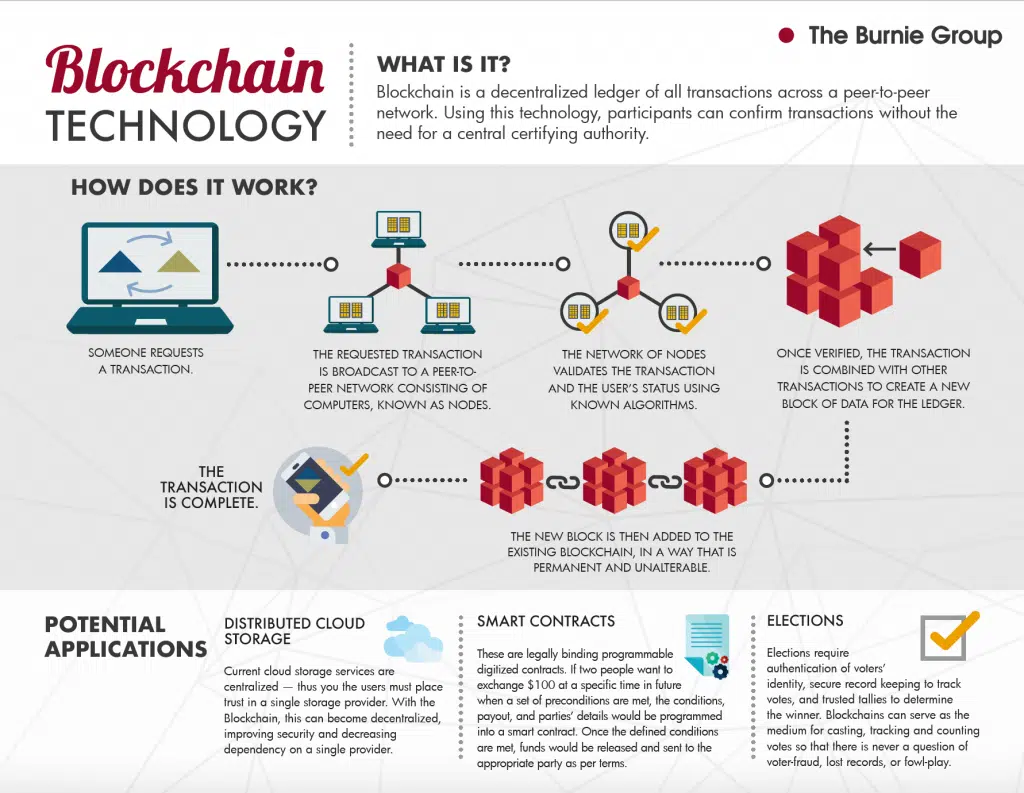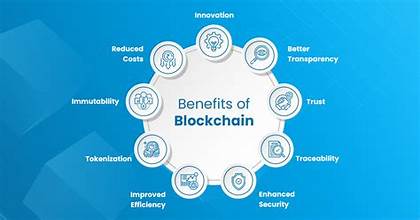
Introduction
Blockchain technology, initially hailed for its role in powering cryptocurrencies, has evolved significantly by 2024. This decentralized ledger system is now at the forefront of several groundbreaking innovations that are reshaping global markets. From enhancing financial security to revolutionizing supply chains and beyond, blockchain is making waves across various sectors. This article explores the latest advancements in blockchain technology and their profound impact on global markets.
Major Innovations in Blockchain Technology
1. Interoperability Solutions
One of the most significant developments in blockchain technology in 2024 is the advancement in interoperability solutions. These solutions allow different blockchain networks to communicate and share data seamlessly. Projects like Polkadot and Cosmos have led the way in creating frameworks that connect multiple blockchains, enabling a more cohesive and collaborative ecosystem. This advancement facilitates the transfer of assets and information across different platforms, enhancing efficiency and reducing fragmentation.
2. Scalability Enhancements
Scalability has been a longstanding challenge for blockchain networks. In 2024, we see innovative approaches such as Layer 2 solutions and sharding gaining traction. Layer 2 solutions, including rollups and state channels, work on top of existing blockchains to process transactions off-chain, thus alleviating congestion and reducing transaction fees. Meanwhile, sharding involves breaking down a blockchain into smaller, manageable pieces, or “shards,” to increase throughput and speed. These enhancements are crucial for supporting the growing demand for blockchain applications.
3. Green Blockchain Initiatives
As environmental concerns become more pressing, the blockchain industry has responded with green initiatives aimed at reducing energy consumption. The transition from proof-of-work (PoW) to proof-of-stake (PoS) consensus mechanisms is a prime example. PoS systems are significantly more energy-efficient and have been adopted by major blockchain networks like Ethereum. Additionally, new protocols are being developed to further decrease the carbon footprint of blockchain operations.
4. Decentralized Finance (DeFi) Evolution
Decentralized Finance (DeFi) continues to evolve, offering new financial products and services that operate without traditional intermediaries. Innovations in DeFi include the integration of artificial intelligence for smarter contract management and risk assessment. Automated market makers (AMMs) and decentralized exchanges (DEXs) are becoming more sophisticated, providing users with increased liquidity and better trading experiences. These advancements are making DeFi more accessible and robust, thus attracting a broader audience.
Impact on Global Markets
1. Financial Services
The advancements in blockchain technology are revolutionizing financial services. Enhanced interoperability and scalability allow for faster, more secure transactions and cross-border payments. Traditional banking institutions are increasingly adopting blockchain solutions to streamline operations and reduce costs. Additionally, the rise of DeFi platforms is democratizing access to financial services, offering opportunities for investment and lending that were previously reserved for institutional players.
2. Supply Chain Management
Blockchain technology is transforming supply chain management by providing greater transparency and traceability. With blockchain, every transaction and movement of goods can be recorded in an immutable ledger, allowing stakeholders to track products from origin to final destination. This innovation reduces fraud, enhances accountability, and improves efficiency. Companies are leveraging blockchain to optimize logistics, manage inventory, and ensure the authenticity of goods.
3. Healthcare
In the healthcare sector, blockchain technology is being used to secure patient data and improve the management of medical records. Blockchain ensures that patient information is immutable and only accessible to authorized parties, enhancing data security and privacy. Additionally, blockchain facilitates the tracking of pharmaceuticals, ensuring the authenticity and safety of medicines and reducing the risk of counterfeit drugs.
4. Real Estate
Blockchain is also making significant strides in the real estate market. Smart contracts are streamlining property transactions by automating processes such as title transfers and escrow services. This reduces the need for intermediaries, accelerates transactions, and minimizes the potential for fraud. Additionally, blockchain enables fractional ownership of real estate, allowing more people to invest in property and diversify their portfolios.
Challenges and Future Outlook
Despite the remarkable innovations, blockchain technology still faces several challenges. Issues such as regulatory uncertainty, scalability concerns, and the need for widespread adoption remain. However, ongoing research and development are addressing these challenges, paving the way for further advancements.
The future of blockchain technology is promising, with continuous improvements and new use cases emerging. As technology evolves, it is expected that blockchain will become more integrated into everyday applications, driving efficiencies and fostering innovation across various sectors.
Conclusion
Blockchain technology in 2024 is characterized by significant innovations that are reshaping global markets. From enhanced interoperability and scalability to green initiatives and the evolution of DeFi, blockchain is making a profound impact across various industries. As the technology continues to advance, it will undoubtedly play a crucial role in shaping the future of global commerce, finance, and beyond.

